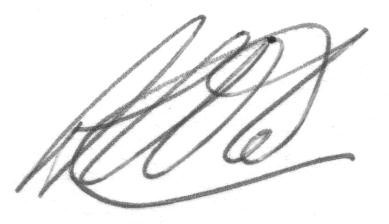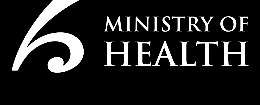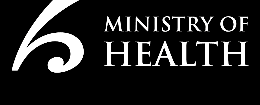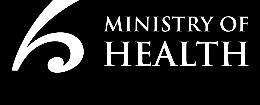
133 Molesworth
Street
PO Box 5013
Wellington 6140
New Zealand
T+64 4 496 2000
7 February 2023
Tracy Livingston
By email: [FYI request #21469 email]
Ref:
H2022018844
Tēnā koe Tracy
Response to your request for official information
Thank you for your request under the Official Information Act 1982 (the Act) to Manatū
Hauora (the Ministry of Health) on 20 December 2022 for information regarding the World
Health Organization’s (WHO) International Health Review Commit ee. Each part of your
request is responded to below.
“Please provide me with a copy of the submitted proposals that the New
Zealand Government has made to the current WHO’s International Health
Regulations Review Committee in regard to proposed amendments to the
International Health Regulations. Please include a copy of the rationale for
amendments proposed by the New Zealand Governments representative.”
A copy of New Zealand Submission to the World Health Organization Working Group on
Amendments to the International Health Regulations (2005) is attached to this letter as
Document 1. This is released to you in full and includes rationale for the proposed
amendments detailed in it.
“Could you please show me where to find all WHO International Health
Regulations already used in New Zealand Government, including all amendments and
when those amendments were made.”
The International Health Regulations (IHR) are the principal international legal framework for
preventing and controlling the spread of disease and other public health hazards between
countries. It is authorised by the constitution of the WHO. As a WHO Member State,
Aotearoa New Zealand is a State Party to the IHR. As such, we are bound to its regulations
as a whole. The capacities and requirements contained in the IHR are implemented in
Aotearoa New Zealand through a range of mechanisms including legislation, such as the
Health Act 1956.
I note your interest in amendments to the IHR. The original IHR were adopted by the World
Health Assembly (WHA) in 1969 and had a narrow focus. The IHR were amended in 1973
and then in 1981 to expand their scope to include cholera, yellow fever, and the plague.
With the increase in international travel and trade, and recognition of the international spread
of disease and other threats, the WHA cal ed for a substantial revision of the IHR in 1995.

The revised IHR (2005) entered into force on 15 June 2007 and now considers almost all
public health risks (including biological, chemical, radiological, or nuclear in origin) that might
affect human health, irrespective of the source. A copy of the IHR (2005) is publicly available
at
: www.who.int/publications/i/item/9789241580496.
Following the onset of the COVID-19 pandemic, the 75th WHA in May 2022 agreed that
further amendments would be required to help strengthen the IHR and ensure the world
would not experience a crisis of this magnitude again. The current amendment process is
now underway via the WHO Working Group on Amendments to the IHR (WGIHR) in
Geneva. The WGIHR involves Aotearoa New Zealand and all other WHO Member States. It
is expected to deliver its results to the World Health Assembly in May 2024.
Further information on New Zealand’s implementation of the IHR is available at:
www.health.govt.nz/about-ministry/legislation-and-regulation/legislation-ministry-
administers/international-health-regulations-2005/implementation-international-health-
regulations.
I trust this information fulfils your request. Under section 28(3) of the Act, you have the right
to ask the Ombudsman to review any decisions made under this request. The Ombudsman
may be contacted by email at:
[email address] or by calling 0800 802 602.
Please note that this response, with your personal details removed, may be published on the
Manatū Hauora website at:
www.health.govt.nz/about-ministry/information-
releases/responses-of icial-information-act-requests.
Nāku noa, nā
Dr Andrew Old
Deputy Director-General
Public Health Agency
Page 2 of 2

Document 1
New Zealand Submission to the World Health Organization Working
Group on Amendments to the International Health Regulations (2005)
In response to the decision WHA75(9) on Strengthening WHO preparedness for and response
to health emergencies, New Zealand welcomes the opportunity to submit our views on
proposed amendments to the International Health Regulations (2005) (IHR) for the
consideration of WHO Director-General Dr Tedros Ghebreyesus.
New Zealand views the establishment of a dedicated Member State-led process to consider
amendments to the IHR (Working Group on Amendments to the International Health
Regulations – WGIHR) as a critical development in our collective efforts to strengthen the
global health architecture for pandemic prevention, preparedness and response (PPPR). We
ACT 1982
note, in particular, the importance of the WGIHR’s work progressing in parallel with the
negotiations of the Intergovernmental Negotiating Body (INB) towards a treaty or instrument
on PPPR, to ensure Member States deliver a coherent and complementary global health
system for future generations.
Strengthening the International Health Regulations (2005)
The IHR is a cornerstone of the international system for PPPR, providing a framework for
INFORMATION
shared surveillance, risk assessment, priority setting and coordinated responses to health
emergencies. When considering amendments to the IHR, New Zealand will prioritise those that
further enhance the early detection, assessment and reporting of potentially significant events,
building on the lessons learned of the COVID-19 pandemic.
Draft amendments to the IHR proposed by the United States – January 2022
New Zealand recalls C.L.2.2022 (20 January 2022) in which Director-General Tedros
Ghebreyesus transmitted proposed amendments to the IHR received from the United States
of America (US). WHA75 saw Member States reach agreement on the US-proposed
amendment to Article 59; New Zealand believes that a number of the other amendments
proposed by the United States are now suitable for the IHR Expert Review Committee and
Member States’ consideration.
These include amendments relating to
notification, risk assessment and communication
mechanisms between Member States and the Secretariat. As a package, amendments in these
areas represent credible improvements to support all Member States and the WHO in its
RELEASED UNDER THE OFFICIAL
implementation of the IHRs. In New Zealand’s view, these amendments would strengthen the
effectiveness of the legal framework as well as the Organization’s ability to respond to risks.
We attach C.L2.2022, in which the following amendments are detailed fully, and provide a
high-level outline for the Secretariat’s reference below.

Document 1
Article(s)
New Zealand Commentary
NEW Article 5.5 – Explicit requirement for
risk assessment and alerting for events of New Zealand considers that the inclusion of
unknown origins
a new Article 5.5 will serve to improve risk
assessment and alert processes.
Article 6.1 – (i) State party responsibility to
assess events happening in its territory within These amendments to Articles 6.1 and 6.2
48 hours of an IHR National Focal Point promote sensible interagency coordination
notification, and (ii) promoting relevant and seek to strengthen communication
interagency coordination in the context of between WHO Member States and the
1982
such a notification.
Secretariat in the event of a PHEIC.
ACT
Article 6.2 – (i) State party responsibility to New Zealand agrees that genetic sequence
communicate with WHO by most efficient data is sufficiently important to be specified
means possible, and (ii) adding “genetic in its own right as crucial information sharing
sequence data” to the list of information within the notification phase (though we
provided as part of a notification of an event suggest it should be listed after “laboratory
that may constitute a PHEIC.
results”, rather than being the first item
itemised after “including….”). We also
maintain that specific time
INFORMATION frames for
verification requests of State Parties and
WHO offers of collaboration will effectively
streamline the WHO’s process for assessing
the extent of the event in question.
OFFICIAL
Article 10.1 – inclusion of a timeframe for
the WHO request for verification from a State These three amendments to Article 10 will
THE
Party.
clarify timeframes for WHO to request
verification and make offers of collaboration.
Article 10.2(c) – Inclusion of reference to
Article 6 paras 1-2.
UNDER
Article 10.3 – WHO offer of collaboration to
be made within 24 hours of notification.
Article 11.1 – Inclusion of information
‘available in public
RELEASED domain’ and the use of New Zealand considers that these
‘shall’.
amendments to Article 11 will strengthen the
WHO’s role in the issuance of information
NEW Article 11.2 (e) – WHO issuance of critical to Member States’ decision making at
information to other Member States for risk the national and regional levels in the event
assessment purposes.
of a PHEIC.
Article 11.3 – Replacing ‘consult’ with
‘inform’.

Document 1
Article 12.6 – For events that fall short of a
PHEIC, WHO Director-General can issue New Zealand agrees that the ability of the
‘global alerts’.
Director-General to issue early alerts to
Member States for events which fall short of
a PHEIC may be a useful addition. We would
propose minor adjustments to this
amendment, including in line with
recommendations from the 2020 IHR
Review Committee:
• Line 3 - we would delete "a potential
international public health response"
and replace it with "preparedness
activity".
• Line 4 - we would delete "a
ACT 1982
intermediate public health alert" and
replace it with "a World Alert and
Response Notice" (as recommended
by the IHR RC).
• Line 5 - we would delete "consult"
and replace with "seek advice from".
NEW Article 49.3 bis – Expression and
INFORMATION
reporting of divergent views of IHR These new additions to Article 49 will enable
Emergency Committee Members.
further transparency around the IHR
Emergency Committee’s processes and
NEW Article 49.3 ter – Composition of reporting for the WHO Secretariat and
Emergency Committee to be shared with Member States alike.
Member States.
As always, New Zealand stands ready to assist the WGIHR Bureau, IHR Expert Review
Committee and the WHO Secretariat to progress negotiations of amendments.
We look forward to collaborating with our fellow Member States within the WGIHR in due
course, and to engaging on the pending report of the IHR Expert Review Committee at the
152nd Executive Board meeting in January 2023.
RELEASED UNDER THE OFFICIAL
Document Outline




